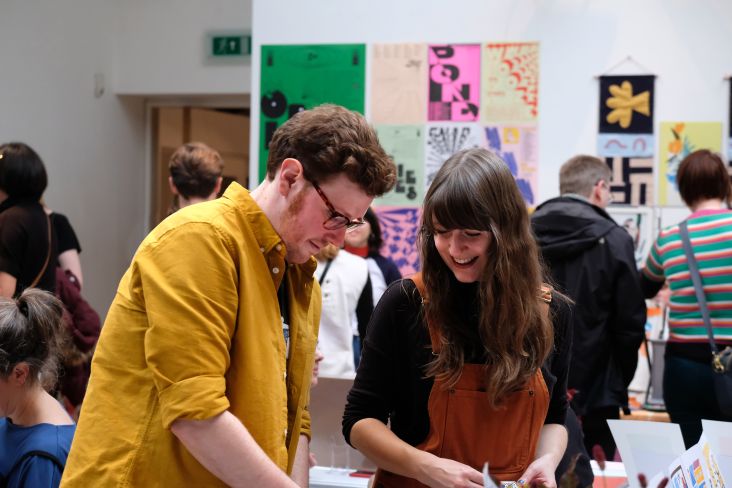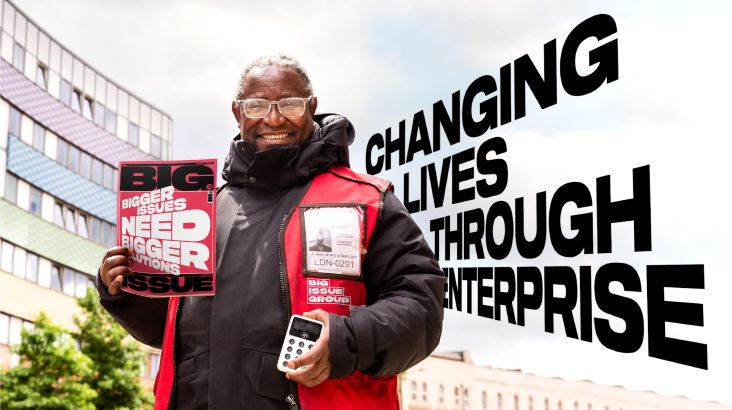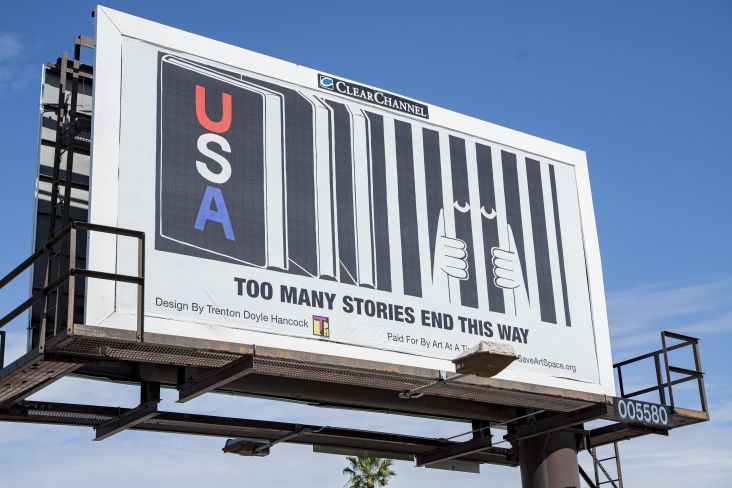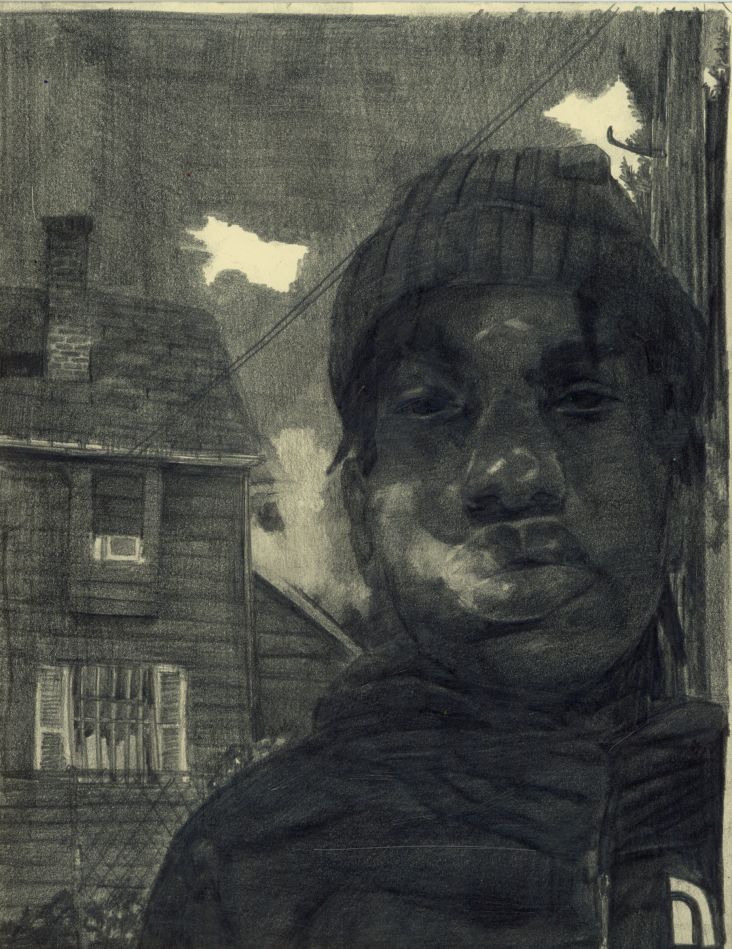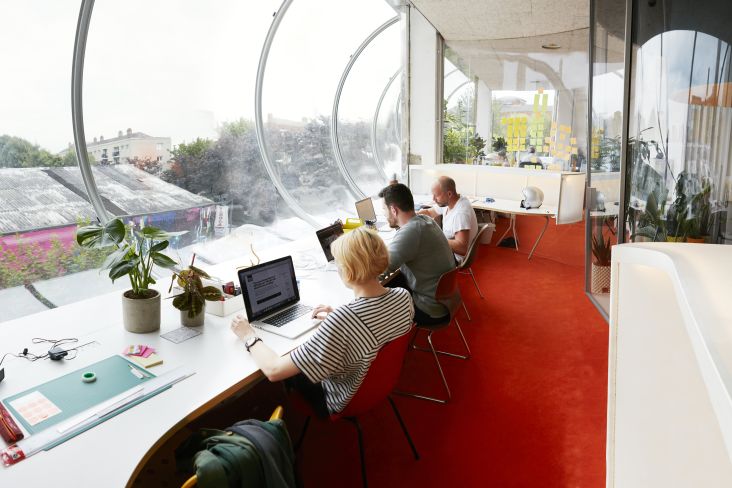Six smart questions designers can ask clients to win bigger projects
Are you struggling to land clients or lure them back for a second, more lucrative job? The questions you ask in that very first meeting can be crucial in getting off on the right foot. In this article, we chat with Digital Edge, an award-winning digital agency, to discover six clever questions you might not think of asking but can make all the difference.

Image licensed via Adobe Stock
Describing itself as "a small company with the loudest people", Digital Edge is a full-service agency with multiple offices across the UK that prides itself on harnessing the sheer force of its personality to help it stand out above larger competitors.
It's an approach that's helped it go from success to success, most recently winning a Wix Partner Award for its work on Custom Mattress Factory. Its directors Joanna Purslowe and Graham Marsh, technical director Scott Purslowe and director of business development Ian Proctor, recently sat down with us to explain the key questions they routinely ask their prospective clients, to win them over and forge long-term relationships.
1. How was your weekend?
If you're inviting a prospective client over to your studio for a chat, of course, you'll offer them a tea or a coffee. But going straight from there into hard-nosed business talk is a mistake, says Ian. Instead, he believes firmly in getting to know the person first.
"Ask: 'How about a biscuit?', 'How're things?', 'What are your kids doing?'", he suggests. "And have a bit of a laugh; don't be too serious. Then when you're comfortable, you can start talking business."
If you've got a busy day or sense the client is in a hurry, it's tempting to skip this stage. But Ian believes it's absolutely crucial. That's because building rapport and getting to know the person first helps everyone relax and builds trust. And so they're more likely to listen to you and your advice.
"Our approach is very personal," says Graham. "We strive to build relationships with people. So it's not just about business; it's about engagement. It's about making someone's day. It's about making people laugh because we want to work with people long-term. And if we can do that and have fun at the same time, why wouldn't you want to work together?"
2. What problems do you have right now?
In the first stage of your client meeting, you established rapport. But it's still too early to start discussing what specific design work you can create together. First, you need to understand the client's business and what it needs – which may not be what they think it needs.
Here's where the previous 'tea and biscuits' chat comes in handy. At this point, you know each other and trust each other. So you can now ask a question like 'What problems do you have right now?'... and actually get an honest answer.
"At this point, I hope they're telling me the real story," says Ian. "And when you get the real story, you understand where they come from, who they are, what they do, and what the struggles are. What they'd like to do in the future, and their dreams and aspirations. And that way, I know what they want."
This was certainly the case for one of Digital Edge's recent clients, JPS, a North East-based procurement specialist. Managing Director Steve Johnson had launched the company in 2017 with a basic website but wasn't attracting much traffic or sales. "They were really busy and needed our help," says Ian. "We sat down with Steve to see how we could add value and analysed what they were doing, bringing in some of our market intelligence. The result was a fresh and professional website that continues to attract enquiries today. Steve has since hired us for more projects and recommended us to his friends."
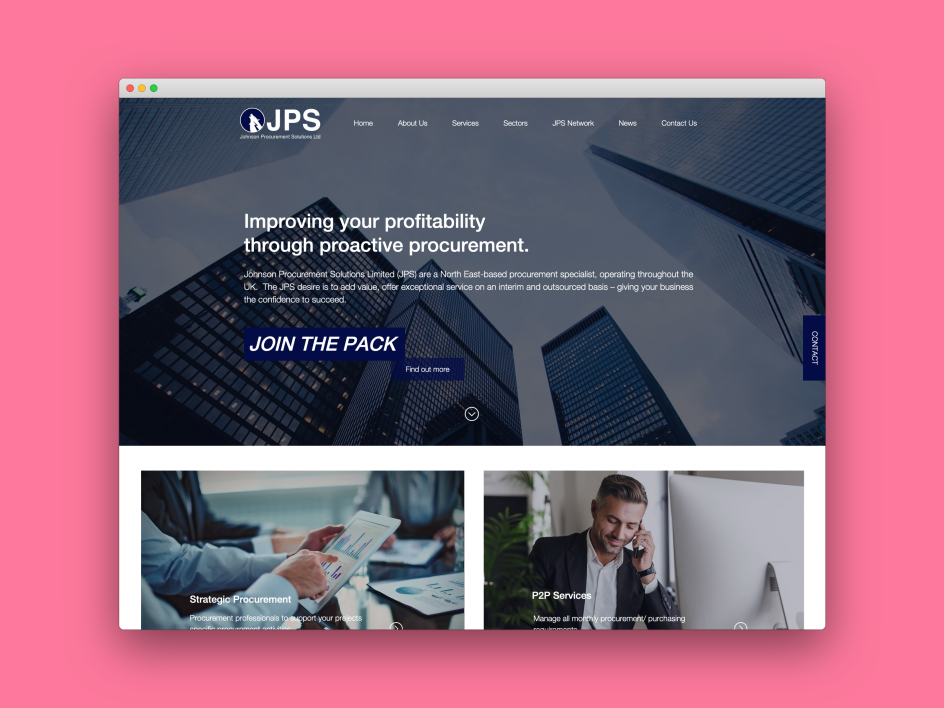
3. Have you considered doing this instead?
If you want your client to be honest in that first meeting, it stands to reason that you should be honest too. And Digital Edge put that principle into practice in a way that might surprise more sales-oriented agencies.
"Sometimes I'll say: "I don't think you need a website," says Ian. "It could be a plasterer, and I'll say: 'Actually, you're too busy. You're running 150%. Why would you want a website?' They'll reply: "Dunno, I just thought that was the thing to do?' And I'll say: 'No, you just don't need one.'
"Because I don't want to take their money if it's not going to help them," continues Ian. "But then, maybe there'll be something else I can help them with, like software or social media. Or maybe by saying that, I'll get three other clients. Because he goes away and tells other people: 'I've been told by the website company I don't want a website!' And they'll come to us because they know they won't get the hard sell."
In short, by being radically honest, you may have missed out on a project – but only for now. The trust you'll have built will pay in spades down the line.
4. What are you too busy with?
Another question that will give you a greater understanding of your client is: 'What are you too busy with?' This question will prompt them to talk about other issues with the business that didn't come under the question about 'problems'... but are still problems that need solving, just less urgent ones. This, in turn, may open doors to work they hadn't previously considered asking for.
"The answer to this question could be as simple as: 'I'm sick of my phone ringing'," says Scott. "So the solution might be setting up web contacts so people can contact you through a form, email, or something along those lines." But if you don't ask the question, you may never know there's a problem to solve in the first place. And because it's harder to win new clients than keep existing ones happy, you should always be thinking about where you can add value and continue to help in future.
5. Where are you wasting time and money?
'Where are you wasting time and money?' is similar to questions two and four, but takes a different angle that may unearth extra issues the client hasn't mentioned up to now. Also, emphasising the client losing money is a subtle way to upsell your services without being pushy. (You're not trying to screw more cash out of them, you're trying to save them cash overall.)
"For us, saving money is a great argument for building an automation," says Scott. "Because some of these software solutions that we build are very expensive. So one of the questions we'd ask around would be: 'Who does this currently?' And it could be a single person doing a repetitive job. In which case: yes, ten grand is a lot to pay for software, but if that saves you 25 grand a year on a wage, it's not really a lot of money at all."
There are two parts to this. Firstly, there may be ways you could save your clients time and make them more efficient. For example, you might help automate something on their website or create a new CMS that makes content updates to their website a breeze. Secondly, could you save them money directly – for example: help them review their apps that push their social media marketing or suggest a better-priced printer for their mailers?
6. What would 'perfect' look like right now?
The questions so far have all focused on the client's current needs. But if you want to build a long-term relationship, it's worth looking to the future too. The question "What would 'perfect' look like right now?" is a great way to uncover their hidden wants and desires and really give you something to get your teeth into.
Asking this question is a way to keep your hat in the ring; essentially, you're saying: 'How else can we help?'. Or, as Ian puts it: "What are you doing every day that's a time thief? Could a system do it? Could we build a system in the backend of your website to do that?"
To find out more about Digital Edge, visit its website at wearedigitaledge.co.uk. To discover more about Wix Partners and how you can create professional websites for your clients, go to wix.com.


 for Creative Boom](https://www.creativeboom.com/upload/articles/06/063686a9a3b095b9b1f0e95df917ed4bd342be1b_732.jpg)



 using <a href="https://www.ohnotype.co/fonts/obviously" target="_blank">Obviously</a> by Oh No Type Co., Art Director, Brand & Creative—Spotify](https://www.creativeboom.com/upload/articles/6e/6ed31eddc26fa563f213fc76d6993dab9231ffe4_732.jpg)
 by Tüpokompanii](https://www.creativeboom.com/upload/articles/58/58684538770fb5b428dc1882f7a732f153500153_732.jpg)








